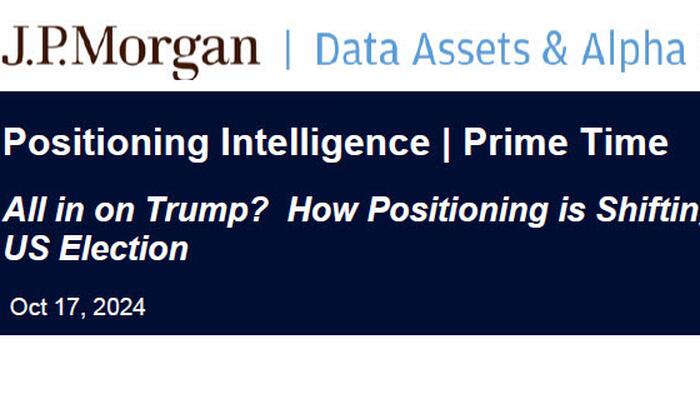Matt Drudge’s significant decline in relevance within mainstream media following the Trump presidency is noteworthy, characterized by his once-strong support for Trump, which has seemingly dissipated. His recent social media post claiming Kamala Harris had a better chance of winning, based on a purported 72% probability according to Wall Street estimates, was quickly challenged. Critics, including market analysts from Goldman Sachs and JPMorgan, rebuffed Drudge’s assertion by highlighting data showing a significant shift in hedge fund investments favoring Republican outcomes, underscoring the growing consensus that a Trump victory is increasingly probable as we approach the 2024 elections.
Goldman Sachs and JPMorgan both reinforced the narrative that hedge funds are strategically aligning their portfolios in anticipation of a Republican electoral victory. Specifically, reports indicated that the Trump Victory index reached an all-time high, while the Kamala Harris index reverted to the lower levels seen during the Biden administration. JPMorgan’s Positioning Intelligence team pointed out that hedge funds are deeply invested in “Republican Winners,” reflecting a broader trend of market participants betting on Republican dominance ahead of the elections. This substantial shift in investor sentiment highlights an increasing perception of electoral predictability and financial market outcomes.
In their findings, JPMorgan noted that there is a pronounced preference for investments associated with potential Republican wins, while investments tied to Democratic successors are languishing at multi-year lows. This trend marks a stark contrast from earlier positions and reflects the broader market’s growing expectation of a Republican win, sharpening the focus on sectors that are perceived to benefit from such an outcome. Moreover, small-cap stocks and crypto stocks were highlighted as benefiting from these shifts, while renewable energy stocks suffered in response to changing political sentiments.
Goldman Sachs also recommended a strategic investment pairing, betting on Republican policy outperformers against their underperformers ahead of the elections, which has resulted in significant gains in the Republican Victory basket. The firm aligns with JPMorgan’s observations, noting a consistent trend in positioning across various asset classes that skews heavily in favor of Republican election prospects. This coordinated financial strategy among market leaders further underscores their confidence in a Republican victory and indicates a major recalibration of market expectations.
Analysts from several investment banks, including UBS, echoed these sentiments, suggesting that the Republican Sweep sentiment is influencing broader market rallies. The S&P 500’s upward trajectory can be partly attributed to the belief in a favorable electoral outcome for Trump and the accompanying shifts in investment patterns. UBS’s research illustrated that the RepublicanWins index consistently outperformed its Democratic counterpart, signaling widespread market confidence in Republican leadership. Notably, the strength of the US dollar amid ongoing geopolitical tensions highlights investor preference aligning with Republican themes expressed through their investment strategies.
Lastly, Deutsche Bank’s analysis provided insights into how various election outcomes are likely to affect market dynamics, particularly in foreign exchange markets. They outlined potential disparities in fiscal and growth outcomes under differing administrations, predicting substantial market volatility contingent on whether Trump secures a Republican sweep or Harris maintains a divided government scenario. Their assessments suggest that market reactions could be more pronounced—possibly leading to a stronger dollar under a Trump-led government—while the implications of a Harris presidency may foster weaker dollar outcomes. The analysis reflects a nuanced understanding of the interplay between market reactions and electoral outcomes, highlighting the broader economic implications tied to political shifts as the 2024 elections approach.

